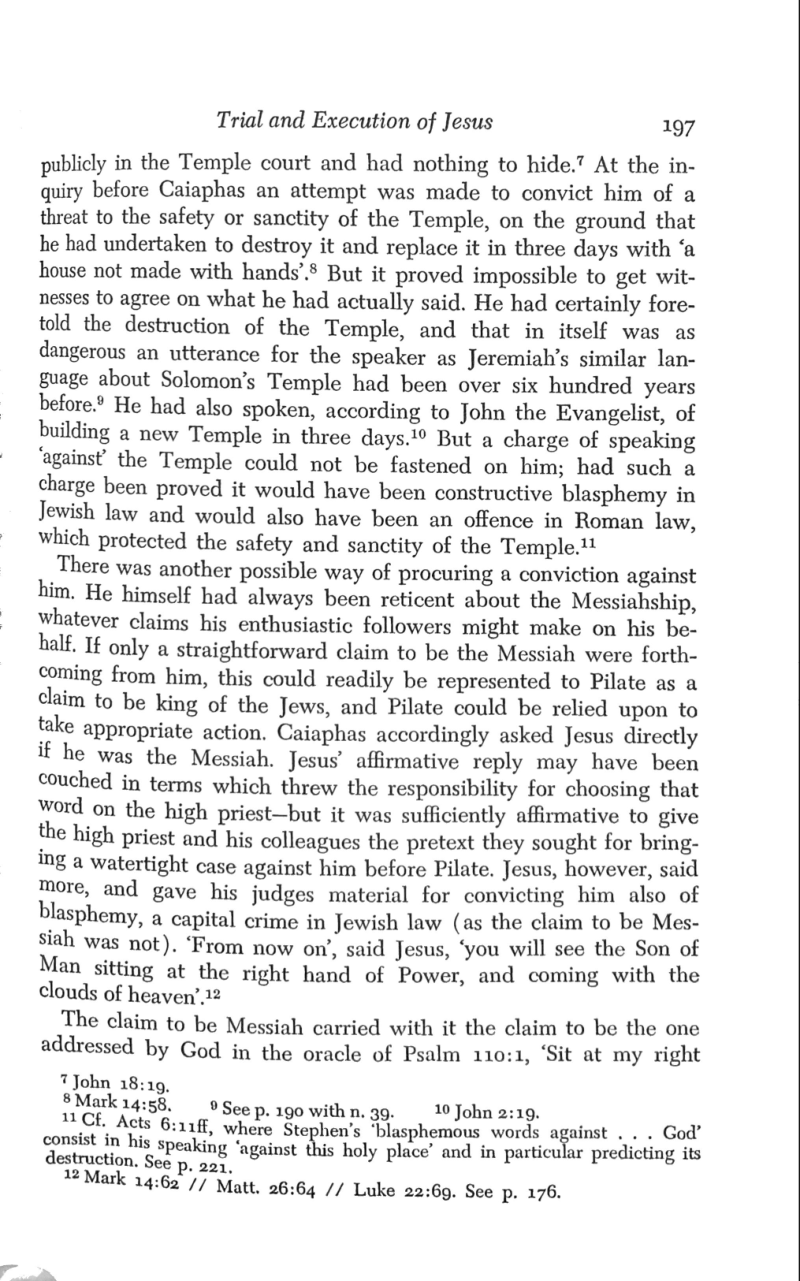F.F. Bruce discusses the use of Daniel 7 in the Messianic Expectation of the New Testament period.
- Type
- Book
- Source
- F.F. Bruce Non-LDS
- Hearsay
- DirectSecondary
- Reference
F. F. Bruce, New Testament History (Garden City, New York: Doubleday, 1969), 197-98
- Scribe/Publisher
- Doubleday
- People
- F.F. Bruce
- Audience
- Reading Public
- Transcription
The claim to be Messiah carried with it the claim to be the one addressed by God in the oracle of Psalm 110:1, ‘Sit at my right hand till I make your enemies your footstool’. That the person so addressed was the Messiah appears to have been generally agreed upon by Jewish interpreters at this time. One who claimed to be the Messiah might therefore, as a corollary, speak of sitting at God’s right hand; but to speak thus explicitly would be regarded as going to the very limit of daring, and the same attitude would be taken to one who, claiming to be the Messiah, accepted the corollary that because the Messiah is addressed by God as his Son in Psalm 2:7, he himself therefore was the Son of God. But Jesus evidently drew both these corollaries. Not only so; in speaking of the Son of Man as coming with the clouds of heaven he applied to himself the language of Daniel 7;13f. There is evidence for certain strands of Jewish interpretation of Daniel’s reference to ‘one like a son of man’ which viewed this figure as almost the peer of God. This interpretation appears, for example, in the older Greek version of Daniel, where the ‘one like a son of man’ comes on the scene ‘as an ancient of days’. We have an echo of it in Revelation 1:12ff, where John has a vision of ‘one like a son of man’ (identified by him with the risen Christ) who is described in terms partly borrowed from Daniel’s description of the Ancient of days; we may have a further echo of it in the shocked reaction of Rabbi Aqiba’s colleagues when he suggested that the ‘thrones’ which were placed in Daniel 7:9, immediately before the judgement scene, might be intended respectively for the Ancient of Days (as the context shows) and for ‘David’, that is the Davidic Messiah. ‘Aqiba’, they protested, ‘how long will you profane the divine glory?’—for the interpretation which identified the ‘one like a son of man’ with the Messiah was felt to border on blasphemy, the more so in view of the Christian acceptance of it.
- Citations in Mormonr Qnas
The B. H. Roberts Foundation is not owned by, operated by, or affiliated with the Church of Jesus Christ of Latter-day Saints.

